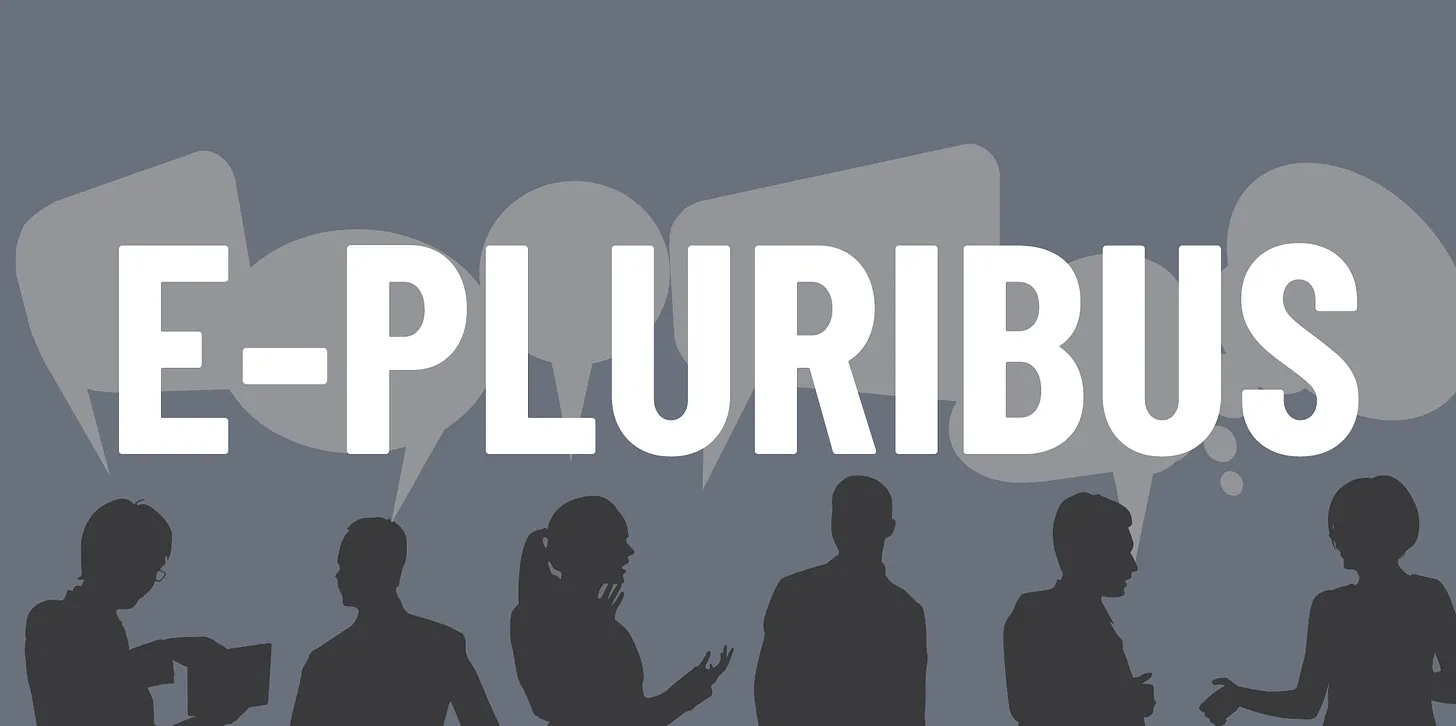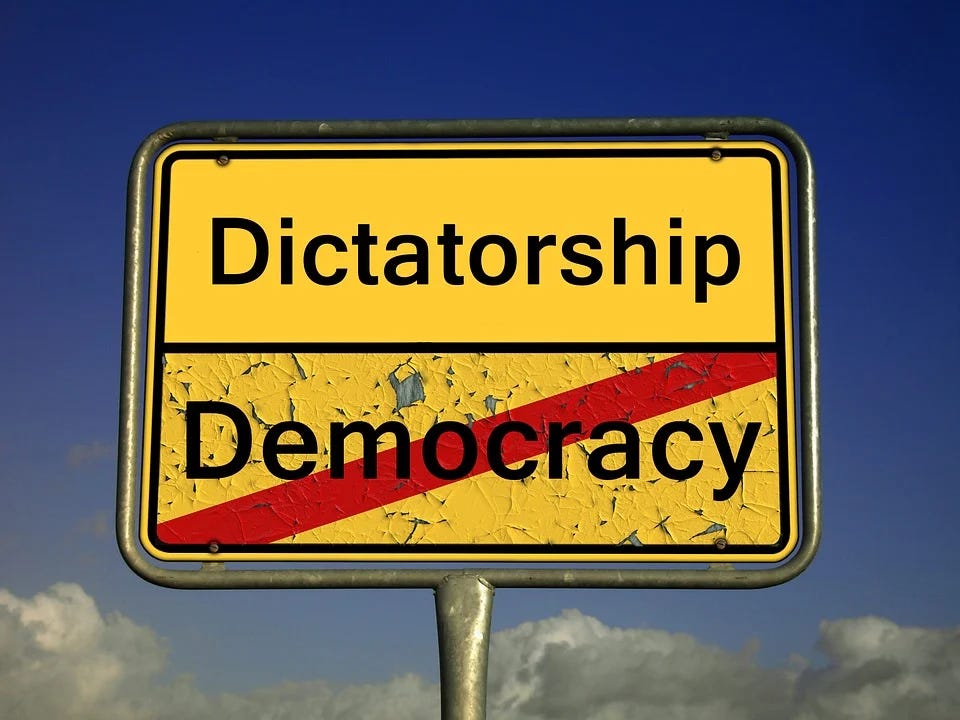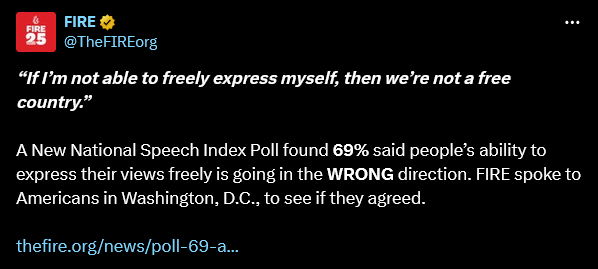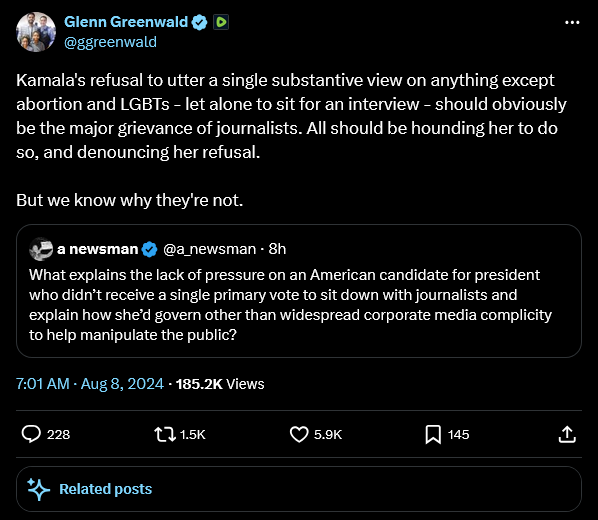E-Pluribus | August 8, 2024
Democracy in Bolivia? Ideological rhetoric muddies Olympic boxing controversy; yes, the 1st Amendment protects hate speech
A round-up of the latest and best musings on the rise of illiberalism in the public discourse:
Matias Ahrensdorf: Bolivia Is No Democracy
Despite the ongoing political and economic chaos in Bolivia, Western leaders and reporters have praised the government for defending democracy. There’s just one problem, writes Matias Ahrensdorf (whose family resides in the country): Bolivia isn’t a democracy. “Regardless of political and ideological leanings,” he argues, the West has to call out authoritarianism wherever it appears:
In late June, in Bolivia’s capital city of La Paz, chaos ensued when rogue military commander Juan Jose Zúñiga breached the entrance of the presidential palace with an entourage of armored vehicles and armed soldiers promising to “restore democracy.” This led to a showdown in the palace’s foyer, where Zúñiga and current president Luis Arce, a member of the Movimiento al Socialismo (MAS) party, or Movement for Socialism, faced off in a shouting match that ended with Zúñiga abruptly retreating. Arce then declared to his supporters from the presidential balcony, “No one can take democracy away from us.”
Western leaders and media voices quickly chimed in to praise Bolivia for putting down the coup attempt and defending democracy. “The European Union stands by democracies,” said EU Commission president Ursula Von Der Leyen. “We express our strong support for the constitutional order and rule of law in Bolivia.”
But is Bolivia a democracy? Since the events of June 26, many have accused Arce of orchestrating the coup to boost his public standing and to exploit the country’s judicial system to persecute political opponents. Before his arrest, Zúñiga himself stated, “The president told me: ‘The situation is very screwed up, very critical. It is necessary to prepare something to raise my popularity.’” The former military commander then said that the president had asked him to bring out the armored vehicles, implying that he wanted theatrics.
…
As of 2023, the country was detaining over 300 estimated political prisoners—more than were held in either Venezuela or Nicaragua. As Jaime Aparicio, Bolivia’s ambassador to the OAS and a legal expert on human rights, explains, “Bolivia, other than their electoral process, is not a democracy. None of the requirements in the democratic charter are fulfilled in Bolivia. There is no independence of the judiciary, no independence of the legislative power, no freedom of expression, and there is no justice, at all.” Aparicio describes the country’s governing ideology as “authoritarian populism,” with a lack of democratic institutions and a tendency for leaders to seize power for personal gain.
Colin Wright: Fact vs Fiction: Olympic Boxer Imane Khelif Is Male and Should Not Be Allowed To Fight Women
The controversy around Algerian Boxer Imane Khelif has been fueled in no small part by ideological journalists more interested in spinning a political narrative than reporting what’s really going on at the Paris Olympics. Overt at Reality’s Last Stand, biologist Colin Wright engages in some helpful media criticism:
The narratives from the political Right have been predictably volatile, referring to Khelif as a “man,” a “cheater,” and someone who perhaps enjoys harming and abusing women. Of course, this reaction is somewhat understandable given the rise of men being allowed to compete against women, with some, such as Fallon Fox, seeming to relish such abuse. After fracturing woman’s skull during a fight, Fox provocatively posted on social media: “And just so you know, I enjoyed it. See, I love smacking up TERFS in the cage who talk transphobic nonsense. It’s bliss! Don’t be mad.”
…
The Left, however, has been quick to pounce given that the situation surrounding Khelif does not appear to involve transgender issues at all, but rather concerns differences of sexual development (DSD), which relates to athletes with mixed or ambiguous sex characteristics. However, while this is crucial information for understanding the details of the case, progressive fanatics for “inclusion” are using ideological language and the complexity of DSDs as an opportunity to stir up even more confusion.
The favored narrative is that Khelif is not a trans woman but a “cisgender” woman with a vagina who “naturally” produces high levels of testosterone. This argument echoes the defense used for South African runner and two-time Olympic gold medalist Caster Semenya when questions about Semenya’s sex were raised. Indeed, progressive media outlets like The New York Times, The Washington Post, Slate, and countless others flooded the zone with so many articles parroting the “female with naturally high testosterone” angle that the truth became effectively buried. To this day, many (most?) on the Left still have no idea that the reason Semenya has “naturally high testosterone” is because Semenya is biologically male with two functioning testes and XY chromosomes.
Furthermore, the progressive Left’s use of ideological language seems engineered to avoid direct contact with reality. Many assert that since Khelif is not a “trans” woman, Khelif must be a “cis” woman, implying that Khelif is female. However, these terms are profoundly misleading.
…
Progressive media outlets might relish the surge of clicks they gain by distorting biological realities for political gains. However, these lies have real-world consequences. It is not an exaggeration to fear that such distortions may soon get someone killed.
Eugene Volokh: VP Candidate Tim Walz on "There's No Guarantee to Free Speech on Misinformation or Hate Speech, and Especially Around Our Democracy"
Earlier this week, vice presidential candidate Tim Walz came under scrutiny for his odd take on the First Amendment: “There's no guarantee to free speech on misinformation or hate speech, and especially around our democracy,” he told MSNBC in December 2022. Law professor Eugene Volokh says it’s more complicated than Walz lets on:
The Supreme Court has made clear that there is no "hate speech" exception to the First Amendment (and see here for more details). The First Amendment generally protects the views that the government would label "hateful" as much as it protects other views.
… As to "misinformation," the matter is much more complicated. Sometimes misinformation, especially deliberate misinformation, is constitutionally punishable: Consider libel, false statements to government investigators, fraudulent charitable fundraising, and more. (For more details on all these points, and citations, see When Are Lies Constitutionally Protected?.) But sometimes even deliberate lies are constitutionally protected. In New York Times v. Sullivan (1964), the Court held that even deliberate lies (said with "actual malice") about the government are constitutionally protected. And in United States v. Alvarez (2012), five of the justices agreed that lies "about philosophy, religion, history, the social sciences, the arts, and the like" are generally protected.
…
Walz, however, seems to be talking about a particular kind of election misinformation: Lies about the where, when, how, and who of voting. Some states already generally ban lies about such election mechanics.
…
So on the misinformation point, if limited to the context that Walz seemed to have been describing—in the Court's words, "messages intended to mislead voters about voting requirements and procedures"—Walz may well be correct.
Around Twitter (X)
FIRE reports that a majority of Americans fears the US is going in the wrong direction when it comes to free speech (click for video):
Your car might be spying on you. The defiant libertarians at Reason explain how you can prevent automakers from sharing your data with other companies—and with the federal government (click for video).
Finally, Glenn Greenwald says Kamala Harris owes voters some answers about her policy positions, and chastises the media for failing to hold her feet to the fire:









